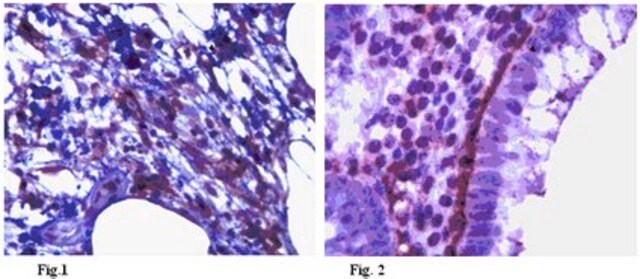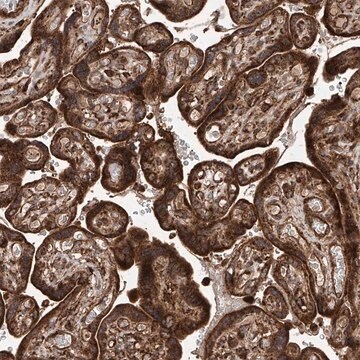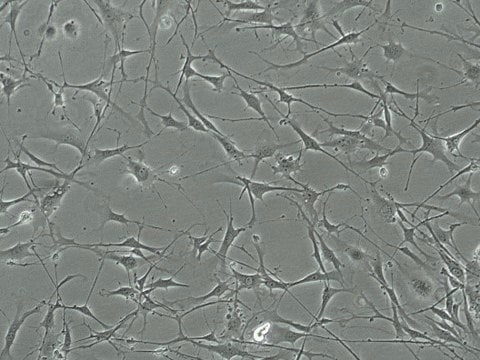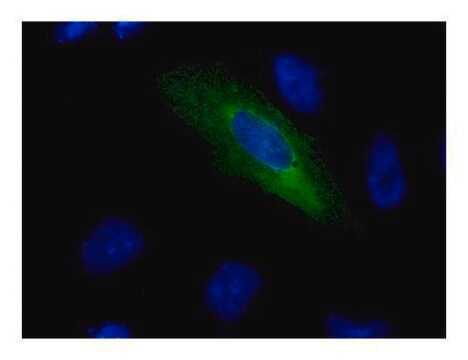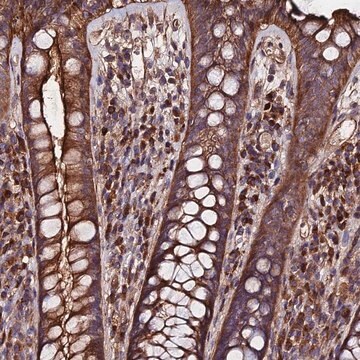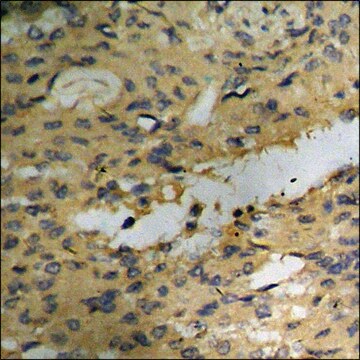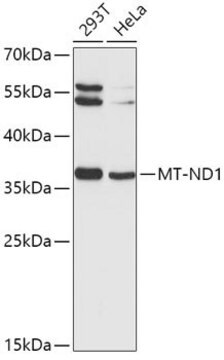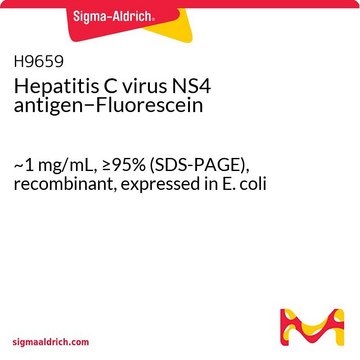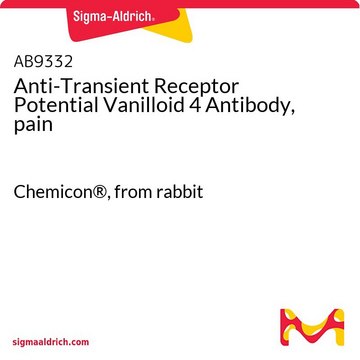推薦產品
生物源
hepatitis C virus
重組細胞
expressed in E. coli
化驗
≥80% (SDS-PAGE)
形狀
frozen liquid
分子量
~22.7 kDa
包裝
pkg of 10 μg
儲存條件
avoid repeated freeze/thaw cycles
濃度
750 μg/mL
顏色
colorless to clear
NCBI登錄號
UniProt登錄號
運輸包裝
dry ice
儲存溫度
−70°C
基因資訊
hepatitis C virus ... HCVgp1(951475)
生化/生理作用
Persistent infection with hepatitis C virus (HCV) is a common cause of chronic liver disease, including chronic hepatitis, cirrhosis, and hepatocellular carcinoma. HCV is an enveloped, single-stranded RNA virus with a 9.6-kb positive-polarity genome, which encodes a polyprotein precursor of about 3,000 amino acids. The HCV polyprotein is proteolytically processed by cellular and HCV proteases into at least 10 distinct products. NS3 serine protease and helicase as well as NS5B RNA-dependent RNA polymerase are believed to be components of a replication complex responsible for viral RNA replication and have been shown to be essential for the HCV replication in chimpanzees. These HCV enzymes have been the major targets for the development of HCV-specific therapeutics during the past decade. The HCV NS3/4A protease is responsible for cleavage at four sites within the HCV polyprotein to generate the N termini of the NS4A, NS4B, NS5A, and NS5B proteins. It has been shown that the central region (amino acids 21-30) of the 54-residue NS4A protein is essential and sufficient for the enhancement of proteolytic activity of the NS3 serine protease. In recent phase I trials, a 2-3-log reduction of HCV viral load was observed after a 2-day treatment with a serine protease inhibitor, which provided the first proof-of-concept evidence that HCV NS3/4A protease inhibitors could be a new therapeutic option for hepatitis C patients.
外觀
Clear and colorless frozen liquid solution
準備報告
Use a manual defrost freezer and avoid repeated freeze-thaw cycles. While working, please keep sample on ice.
儲存類別代碼
10 - Combustible liquids
水污染物質分類(WGK)
WGK 1
閃點(°F)
Not applicable
閃點(°C)
Not applicable
分析證明 (COA)
輸入產品批次/批號來搜索 分析證明 (COA)。在產品’s標籤上找到批次和批號,寫有 ‘Lot’或‘Batch’.。
A A Kolykhalov et al.
Journal of virology, 74(4), 2046-2051 (2000-01-22)
Hepatitis C virus (HCV) infection is a widespread major human health concern. Significant obstacles in the study of this virus include the absence of a reliable tissue culture system and a small-animal model. Recently, we constructed full-length HCV cDNA clones
Blight, K. J., et al.
Antiviral Ther., 3, 71-81 (1998)
M J Alter
Hepatology (Baltimore, Md.), 26(3 Suppl 1), 62S-65S (1997-09-26)
In the United States, the annual number of newly acquired acute hepatitis C virus (HCV) infections has declined from an estimated 180,000 in the mid 1980s to an estimated 28,000 in 1995. Approximately 25% to 30% of these infections are
我們的科學家團隊在所有研究領域都有豐富的經驗,包括生命科學、材料科學、化學合成、色譜、分析等.
聯絡技術服務
